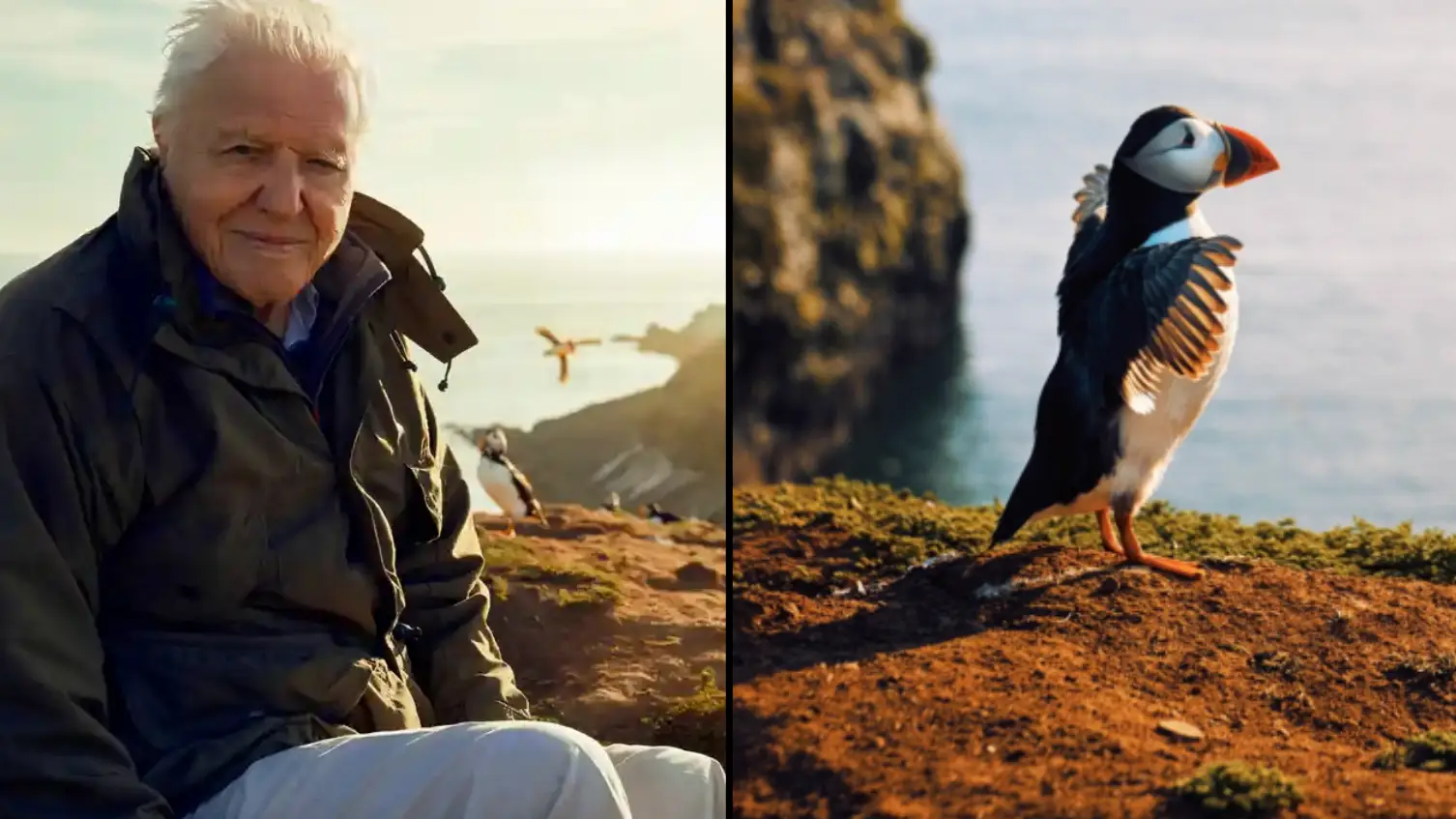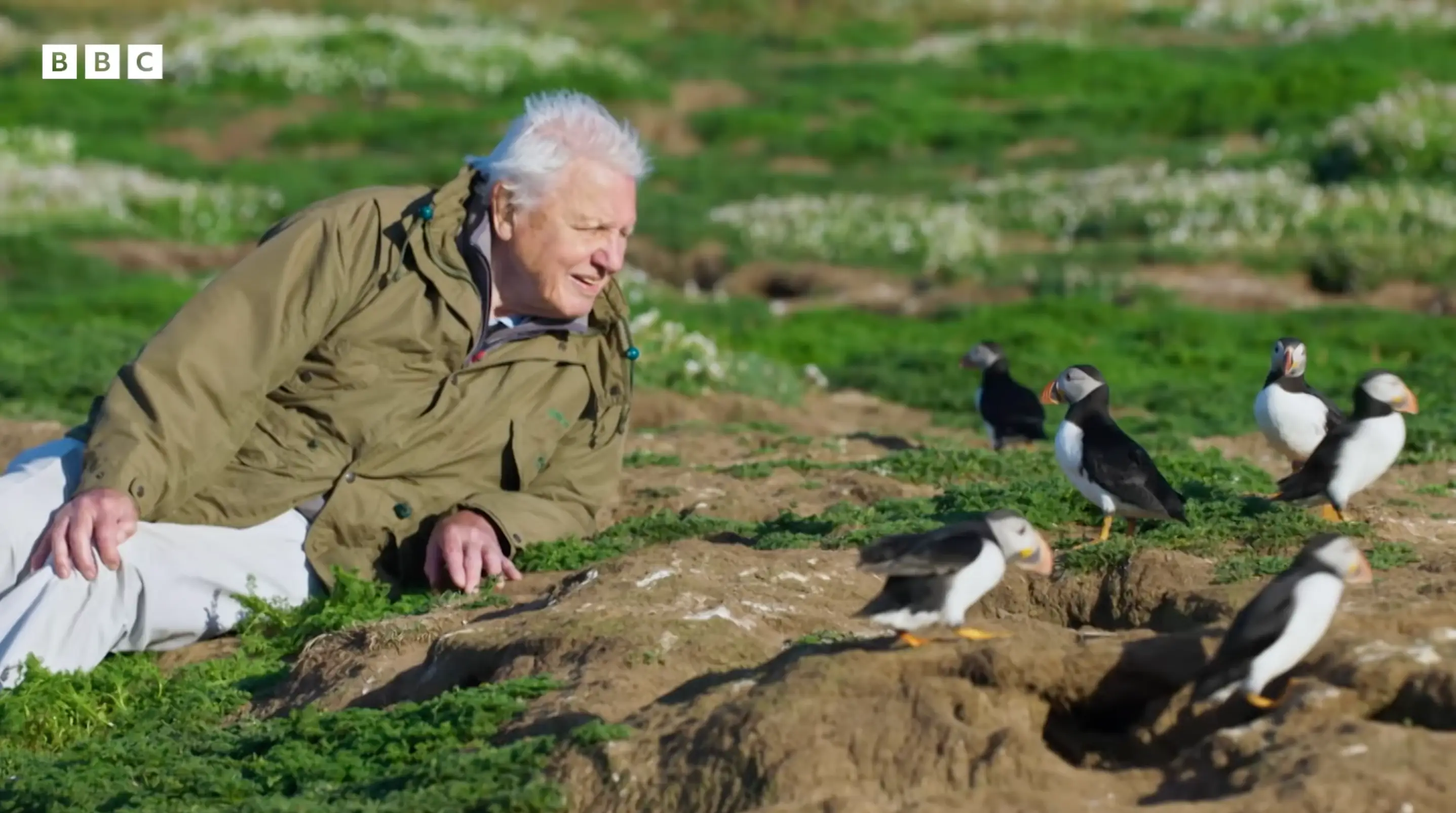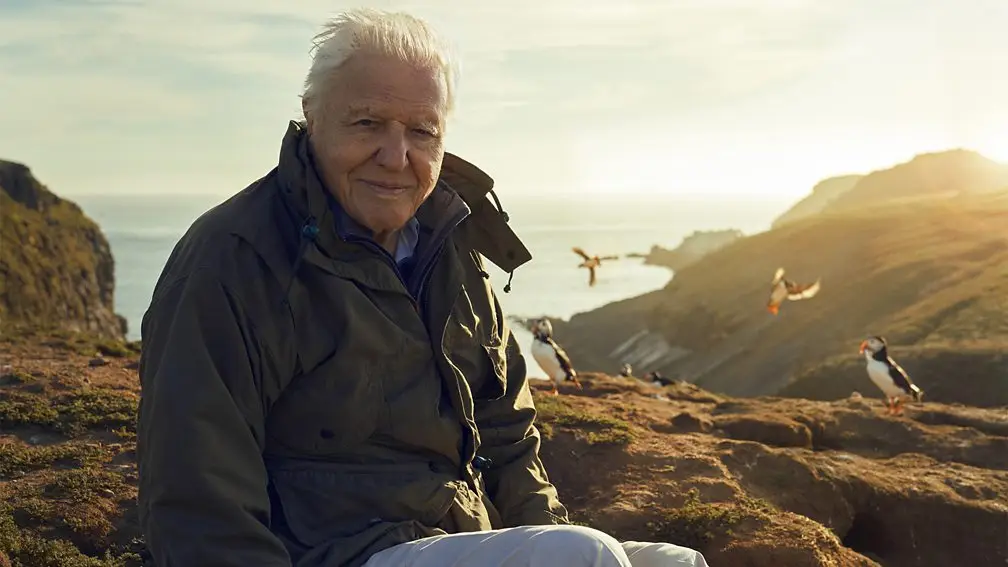
The BBC has reportedly made the decision not to air one of the episodes of David Attenborough's new docuseries over fears that it could spark backlash from right-wing press and politicians.
Attenborough's latest series, Wild Isles, will focus on the beauty of the British Isles, and is expected to be just as successful as his previous nature programmes.
However, only five of the six episodes are expected to air during BBC One's primetime slots, starting this Sunday (12 March).
Advert
The sixth episode, which reportedly covers the destruction of nature in the UK and its causes, will only be available to watch on BBC iPlayer.
Sources from the BBC told the Guardian that higher-ups in at national broadcasting service made the decision in the hopes of easing off criticism from more conservative groups.
Earlier this week, the BBC already felt the heat when The Telegraph complained the new docuseries had taken funding from 'two charities previously criticised for their political lobbying'.
Wild Isles was partly funded by the WWF and RSPB, and made by Silverback Films in association with the BBC Natural History Unit.
Wild Isles producer Laura Howard commented on the BBC's decision, and assured that there is nothing political about Attenborough's new series.

"We’ve worked really closely with the RSPB in particular who are able to factcheck all of our scripts and provide us with detailed scientific data and information about the loss of wildlife in this country," she told The Guardian.
"And it is undeniable, we are incredibly nature-depleted. And I don’t think that that is political, I think it’s just facts."
Howard also shared her hopes that younger audiences, who are perhaps more used to streaming on BBC iPlayer, will be able to tune in to the final episode.
Meanwhile, Green party MP Caroline Lucas hit out at the BBC's decision to hide Attenborough's message on conservation and climate change, describing it as 'unforgivable'.
"For the BBC to censor of one of the nation’s most informed and trusted voices on the nature and climate emergencies is nothing short of an unforgivable dereliction of its duty to public service broadcasting," she stated.
"BBC bosses must not be cowed by antagonistic, culture war-stoking government ministers, putting populist and petty political games above delivering serious action to protect and restore our natural world. This episode simply must be televised."

A spokesperson for the BBC has said: “Wild Isles consists of five episodes: Our Precious Isles, Woodland, Grassland, Freshwater and Ocean. Saving Our Wild Isles is a separate film inspired by the series that was commissioned by the RSPB and WWF. We’ve acquired it for iPlayer.”
This news, which has already been met with heavy backlash and disappointment online, follows the announcement that Gary Lineker would be stepping back from presenting BBC Sport's Match of the Day.
In a statement, the BBC said that the former England player would take a break from the weekly football show.
A spokesperson said that he would no longer present it until there is 'an agreed and clear position on his use of social media'.
It came after Lineker criticised Prime Minister Rishi Sunak and other government officials for the language they used in a Home Office post about getting control of the number of small boats crossing the Channel in recent months.
This is in relation to the Illegal Migration Bill, which is set to be debated in Parliament on Monday (13 March).
Topics: David Attenborough, BBC, TV and Film, UK News
